- Home
- Hilary Mantel
A Change of Climate: A Novel Page 11
A Change of Climate: A Novel Read online
Page 11
Ralph walked over the site of the catastrophe. A few odd shoes had been left behind in the scramble to escape the batons and whips. He saw a straw shopping bag, decorated with a swelling, pink straw rose; it lay on its side, and its contents were by now on someone else’s shelf. The ground had been picked over pretty well, he saw; he thought it was a strange form of looting. It was hard to know who was worse; the policemen who had done what they said was their duty, or the scavengers who had taken from the housemaid’s bag the half loaf, the two ounces of green tripe, perhaps the soap ends or old cardigan some Madam had given, some well-meaning idiot woman down in the white houses, the jacaranda groves.
“Can you do anything, Mr. Eldred?” Lucy Moyo said. “Anything to help us?”
“I can try,” Ralph said.
He went back to his office and rifled through his papers for the list he had been compiling: the names, addresses, telephone numbers of the senior policemen within a hundred miles. He picked up the telephone receiver and began to work his way through the list. These calls did not last long, in most cases; when the policemen heard his English accent, and learned that he lived in Elim, they put the phone down on him.
He sat up for most of the night, writing to the newspapers. “You saw the casualties,” he said to Koos. “You know what happened here, better than anybody. Put your name on these letters with me.”
Koos shook his head. “Better not, Ralph. I have my patients to think about. What would they do without me?” He shrugged. “A lot better, maybe.”
After the baton charge, their situation changed. They were invited to houses in Elim they had never entered before. People who were not churchgoers came to the Mission House. The local organizer of the African National Congress called on them; and on the same day came a man from Sophiatown, a black journalist from Drum magazine. He sat leaning back on one of the metal-legged kitchen chairs, so that its front feet were in the air. He found things to laugh about.
Rosinah’s apprentice served him tea in an enamel mug. Anna said sharply, “The cups and saucers, please, Dearie.” Dearie brought a cup and slapped it down on the table. She scowled. Cups were for whites, enamel mugs were for Africans; this Madam had instituted different practices, which proved she knew nothing. She thought this black man was above himself, putting on airs, in his lightweight blue suit with the sharp creases in the trousers. Trouble came of it: in her opinion.
“Pretoria wants to grow, grow, grow,” the handsome boy said, lolling back on his chair. “The Nats want this place cleared. They will find these people somewhere else, some piece of the veld where they can put them and forget them. Some place with no water and no roads. So that their children can grow back into savages.” The young man laughed, a satirical laugh. His eyes were distant already, and it could be seen that he was on his way to a scholarship abroad: Moscow, perhaps, and who could blame him? “I can tell you, Mrs. Eldred,” he said, “it is hardly possible for an African to live and breathe and be on the right side of the law.” He looked deeply into Anna’s eyes; indicating, one, that she attracted him and two, that he would not think to take any trouble over her.
It was after midnight when the handsome boy left. Next afternoon, a white police sergeant sat on the same chair: its legs now foursquare and grounded. “Makes a change, Mr. Eldred, for me to come and see you. Usually it’s you comes to see us.”
The sergeant was fair-haired, meager, not a big man. But he sat like a true Afrikaner: legs splayed, as if to indicate that in no other way could he ease his bull-like endowment. Ralph did not, at once, dislike him, perhaps because he was of the same familiar, freckled, physical type as Koos, and anxious too, nervously smiling; his nails were bitten down to the quick.
The sergeant had not refused tea. Dearie gave him a cup, of course, and a saucer too. He just wanted Ralph to know, he said, as he helped himself to sugar, that the police were aware what kind of visitors he’d been getting. “You’re a stranger here,” the policeman complained. “You’re new to South Africa. You ought to make nice friends.”
In passing, Ralph felt sorry for him. He was nervous, a chain-smoker, offering his pack each time to Anna; sometimes a fleeting spasm crossed his face, as if he were in pain.
“I didn’t catch your name,” Ralph said, when the sergeant wiped his mouth and stood up to go. “Why don’t you just call me Quintus,” the man said. “Because I expect we’ll be getting to know each other.”
“I think he must have beetles in the bowels,” Ralph said after he’d gone. “Needs to go to Luke Mbatha for some python fat.”
Ralph told Koos that the more stupid the white policemen were, the worse they treated him—except maybe this Quintus, who was well intentioned in his way.
Koos rubbed his red hands through his scrubby pale hair; and Ralph, who had been learning anatomy among other things, felt he could see afternoon light flash between radius and ulna. “Be over to his braai, soon, Ralphie. You drink his beer, man, you eat up his scorched flesh-meat.”
“No. I don’t see we’ll be on those terms.”
“Ah,” Koos said. “But you soon learn to like those motherfuckers. You like me, don’t you? And I’m one of them. Something sweet and simple about us, isn’t there? Something pathetic? Always trying to be liked. Well, there’s this thing we have, a kind of-— hospitality. If a man comes by you make him comfortable; it’s an African thing, the blacks have it and so do we. Do you think that while you’ve been in this township you have learned anything at all about what goes on here? Because if you do, man, you’re more imbecilic than I took you for.”
Later, in a more sober mood, Koos said: “You have to try to understand these—my lot, I mean. The British put their women and children in concentration camps. The Zulu smashed the skulls of their babies against their waggon wheels. They have long memories, Afrikaners. Memory is their specialty.”
Ralph was struck by how he said “these people.” Just as Lucy Moyo did, when she talked about her friends and neighbors.
“All I hope,” Ralph said, “and it’s a fairly faint hope, I know— is that the country will grind to a halt under the weight of its own ludicrous bureaucracy. You can hardly see a gap where a man can slip though.”
“There’s no slipping through,” Koos said. “Everybody’s watching everyone else. This country is like that. My hometown, my people—Jesus, man, you can’t imagine.”
“I think I can,” Ralph said.
“My father believes the world was made in seven days. It’s in the Bible, he says.” Koos laughed.
In the new year the early-morning raids began. They happened over three days. On the first morning, the police entered the township at five o’clock. They had armored vehicles, and they came in force. They cordoned off the area they had chosen and went from house to house, kicking in the doors. Next day, when people came down to the mission to give their accounts, this as much as anything gave rise to indignation: that they had shouted out that they were police, that the doors must be opened, but then they had given no time for the householders to obey them. “As if we were animals,” a woman said, “who would not understand.”
They were looking for liquor, the police said, for evidence of illicit stills. They were also looking for arms; there was a rumor current, which Ralph wished he had not heard, that materiel had been brought into Elim by night, and stowed away against a braver age.
Since the riot—the so-called riot—the atmosphere had been restless and strained, and the corner boys had a sullen, knowing look. He no longer allowed Anna to go out alone. Where people knew them, they were safe enough. Where they were unknown, a white face had become a provocation.
Those nights of the raids, Ralph found it impossible to sleep. There was the fear that some wider kind of trouble would blow up; that forewarned of the police action a crowd would gather, young boys heedless of the consequences, with sticks and bottles and, God knows, perhaps these mysterious arms; then there would be a replay of the baton charge, or perhaps much worse, perh
aps bullets. He felt foolish, helpless, inconsequential, as he lay on his back staring up at the ceiling, an orange light insinuating itself through the gap in the curtains.
It had become necessary to fix these lights around the mission compound. A week ago, the nursery school had been broken into. There was no money for the thieves to take, no food; they had kicked the little tables about, torn up some books, ransacked Anna’s broom-cupboard office and made a small fire in there. It could, of course, have burned down the building, if Father Alfred had not seen the flames from his bedroom window.
Then, on Sunday, when the mission workers were at their various services, a sneak thief had entered Rosinah’s single-room house, taken her clothing, including a woolen hat which belonged to Dearie and which Rosinah had extracted from her on a forced loan. The cook’s retching sobs had been out of all proportion to the loss. They had—himself and Anna, Dearie, the gardeners—spent an hour trying to coax her to stop crying. Clara, the educated washerwoman, stood by the door not speaking. There was no expression on her face. She looked like a woman who might have lost everything, many times over.
Hence the security lights. Their sleep had been broken since. His wife’s tension seemed to communicate itself to Ralph through the sagging springs of the bed. Toward dawn he dozed. Phrases ran through his head, the phrases that he lived with each day: Thirty shillings or ten days. My husband, baas, is whereabouts unknown.
And toward dawn on the third day the police came to the mission. It was almost a relief to hear them pounding at the door. He and Anna were both out of bed in a moment; their faces peaked in the gray light, they understood the extent of each other’s wakeful-ness. Ralph pulled on the trousers and shirt he had left folded by the bed. Anna belted her dressing gown over her long nightdress. What was the point of rushing? The police would break the door down anyway.
In the event, the police checked themselves; as if, here on the mission steps, some notion of civility still held sway. “It’s you,” Ralph said, opening the door; Quintus stood there. He had feared unknown faces, Special Branch perhaps. Haifa dozen men trooped in. Quintus introduced his colleague, Sergeant van Zyl. They had hardly got through the pleasantries when the men began to stomp through the house, looking in the cupboards and under the bed. “Of course, Sergeant,” Ralph said, you spotted at once that I’m the type to run a still. Me and my wife, aren’t we just your typical shebeen-owners?”
Sergeant van Zyl said, “We are looking for a person we have reason to believe may be on your premises.”
“What person? Dr. Verwoerd? Mickey Mouse?” Van Zyl looked baleful. He was a big man; hitching his thumbs into his belt, he moved the burden of his belly a little. “You wrote a letter to the Pretoria News, Mr. Eldred. Don’t do that again.”
Let’s stay calm, Ralph said to himself. “My letter was only to tell people what really happened the day of your baton charge. I wrote to invite people to come up here and look at Elim for themselves. To look at our churches and our schools, and ask themselves if we are the hotbed of vice and crime they are constantly told that we are. To look at what we do here, and ask themselves if we deserve to be destroyed.”
“We know what your letter said,” van Zyl told him. “We have read it ourselves in the newspaper. The brigadier doesn’t like your tone, Mr. Eldred.”
“Well, if it’s only my tone,” Ralph said easily. “The content doesn’t trouble him?”
“You’d have more idea about crime,” van Zyl said, “if you spent some time with us at the police station.”
“But I do spend time. I could hardly spend any more. Unless I moved in with you.”
“I suppose that might be arranged,” van Zyl said.
The police had given up on the mysterious person, whoever he was. They were in Ralph’s office, rummaging through his papers. Sergeant van Zyl settled on his desk. Again he twitched at his belt, settling his bulk comfortably, as if his gut were something apart from him, a pet animal he kept.
“If I knew what you wanted,” Ralph said, “I could perhaps help you out.”
“Help yourself out, man,” van Zyl said. “Keep out of our way.”
Quintus attempted covert signals. He looked sick. Ralph would not meet his eyes. His clear meaning was, be careful, for van Zyl is not your decent type of policeman. And that was evident; there was no need to collude on it. If Quintus felt bad, let him quit; he, Ralph, was not going to do anything to ease a policeman’s conscience.
The search was a perfunctory one, but as messy as could be contrived. They had done it for the nuisance value, Ralph thought. Even so, he knew that Anna, standing against the wall, was trembling. He would have liked to turn to her, hold her in his arms, but he did not want to take his eyes from van Zyl’s eyes. He would not be the one to look away first.
Quintus ushered them from the office, grumbling. “I don’t know how you find anything in this place.”
“We’ve always managed,” Anna said. “But I don’t suppose we’ll manage now.”
Her voice was cool. Quintus shook his head. He spoke in Afrikaans to his colleague. Enough’s enough, he seemed to be saying. The men trooped out. They were left alone, with their papers scattered about the Mission House, as if a gale had blown through, or some apocalyptic wind.
The same day, late afternoon, Quintus turned up with a truck. “Got something for you,” he said, smiling as if he had not seen them earlier that day.
Two black boys leapt down from the back of the truck, and maneuvered onto the stoep a large filing cabinet, battered and scratched, dark green in color. “Just what you need, eh?” Quintus said.
“Oh, Quintus, a donation,” Anna said. She smiled, as if deeply touched.
Quintus did not know the difference between affectation and reality. “No need to thank me, man,” he said modestly. “It’s just scrap metal. We were throwing it out. A drawer fell out and broke the brigadier’s toe, that’s why.” He addressed Ralph. “So you take care and don’t be rough when you pull it out.”
“Cup of coffee?” Anna said. Like Ralph, she felt a sneaking pity for the man. Quintus sat down at the kitchen table. He said, “I know you don’t like me coming round here. But we’ve been told to keep an eye on you. Look, there are worse people in the force.”
“I know. We’ve met him,” Ralph said. The sergeant sat brooding over his cup. “Hell, man, you think I like my job? A man’s got to earn a living.”
“I get tired of hearing that,” Anna said. “There are other ways, surely?”
The sergeant reached into a pocket of his uniform, took out his wallet. To Ralph’s deep embarrassment, he drew from it a family snapshot. “My girls,” he said.
Ralph looked at it. Three daughters. Twelve, ten, and eight they might be. Graded by height, the arms of one sister around the waist of the next, blond heads leaning back onto the shoulder of a woman slighter, more modest than they, scarcely taller than the eldest girl. Filaments of hair escaped from their plaits, and stood out like halos as they smiled into the sun. Hitler’s wet dreams, he thought. He handed the photograph to Anna. “Beauties,” he said. “Your wife, Quintus, she looks a lovely girl.”
“When you’re a family man you’ll understand a lot you don’t understand now,” the policeman promised. “You think about them all the time, Jesus, you worry. What sort of a world are they going to grow up in? Are they going to marry kaffirs?”
“We don’t use that word here.”
“Oh, words,” the sergeant said. “That’s what gets to me about you people. Words.”
He didn’t explain his objection; he stood up, said he must be going. “Next time we come,” he said, indicating the filing cabinet, “you’ll have everything in the one place for us?” Tentatively, he touched his uniformed chest and winced. “Mrs. Eldred, could I trouble you? Have you got anything to take the acid off my stomach?”
“Quintus wants to be human,” Anna said, when he left.
“He must get another job then.”
That even
ing Koos came to the back door. Just for a few minutes; he wouldn’t eat with them. Couldn’t, really, he said. His jaw was swollen. He had lost two teeth. The police had called on him too. They had smashed their way through the front of his surgery, smashed in the windows—though everybody knew he slept in the room at the back. They said they wanted to talk to Luke Mbatha, the dispenser. They’d given Luke’s shack a going-over, and taken Luke away in a van.
Koos wanted Ralph to come down to the station, bringing what money he had by him, to try and bail Luke out. “God knows he’s no innocent,” Koos said. “But you know what happens to black men in police cells.” He had, he explained, no money of his own. The matter was urgent, he said, looking away. Otherwise he would not have come. They might have taken Luke Mbatha down the hill to Pretoria by now, and perhaps they would never find him again.
“Why didn’t you come before?” Ralph said.
“Because I can’t walk when I’m unconscious,” Koos said. His pale eyes were bloodshot, and his hands shook. One of the policemen had hit him in the face with a pistol butt, and then presumably hit him on the head, because he had come to at the house of one of his patients, lying on a pallet and covered with one of Anna’s knitted blankets. “A good blanket,” he said. “Very warm. Thank you, Anna.” He couldn’t remember much of what had happened. The policeman who hit him had called him a white kaffir. That sergeant, he said—not van Zyl. The thin one. The other. Quintus Brink.
They realized, over the next few days, that it was no longer safe to make telephone calls. They knew there was nothing seditious in their conversation. But anything could be twisted, and would be, and they knew that there were listeners on the line.
Van Zyl came by again—just visiting, he said—and it went badly. He stared at the filing cabinet as if he knew it from somewhere. “Any visitors last night?” he said.

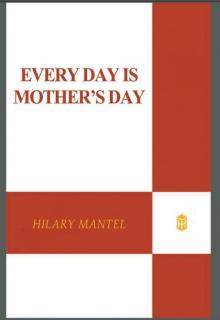 Every Day Is Mother's Day
Every Day Is Mother's Day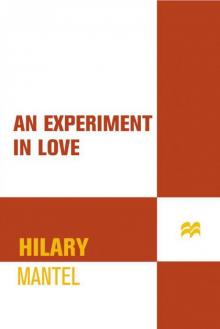 An Experiment in Love
An Experiment in Love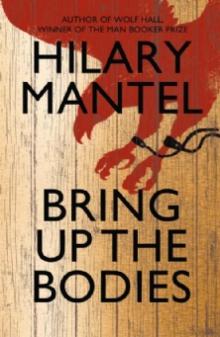 Wolf Hall
Wolf Hall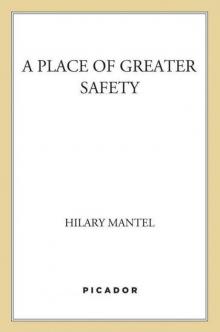 A Place of Greater Safety
A Place of Greater Safety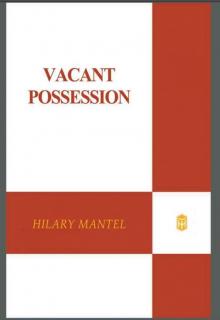 Vacant Possession
Vacant Possession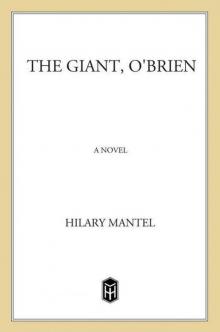 The Giant, O'Brien
The Giant, O'Brien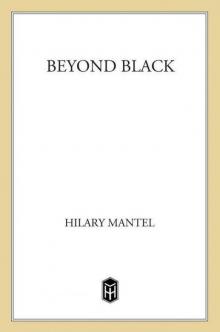 Beyond Black
Beyond Black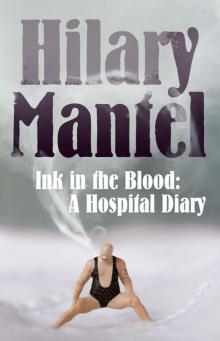 Ink in the Blood: A Hospital Diary
Ink in the Blood: A Hospital Diary The School of English
The School of English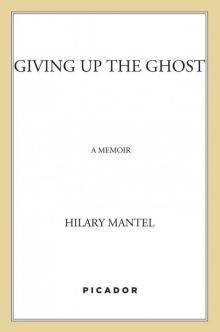 Giving Up the Ghost
Giving Up the Ghost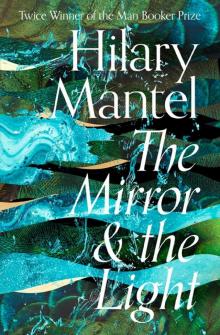 The Mirror and the Light: 2020’s highly anticipated conclusion to the best selling, award winning Wolf Hall series (The Wolf Hall Trilogy, Book 3)
The Mirror and the Light: 2020’s highly anticipated conclusion to the best selling, award winning Wolf Hall series (The Wolf Hall Trilogy, Book 3)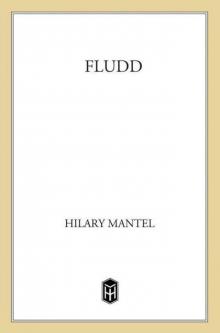 Fludd
Fludd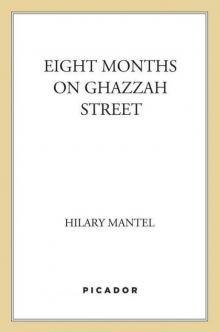 Eight Months on Ghazzah Street
Eight Months on Ghazzah Street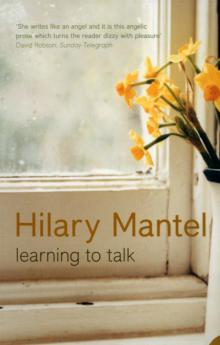 Learning to Talk
Learning to Talk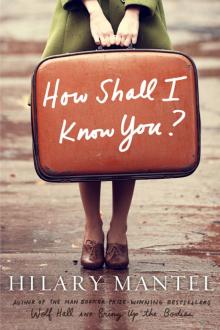 How Shall I Know You?: A Short Story
How Shall I Know You?: A Short Story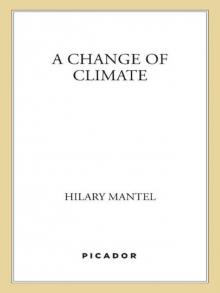 A Change of Climate
A Change of Climate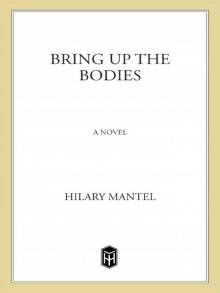 Bring Up the Bodies
Bring Up the Bodies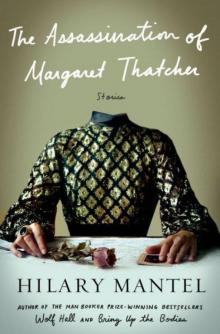 The Assassination of Margaret Thatcher: Stories
The Assassination of Margaret Thatcher: Stories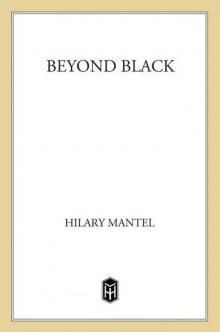 Beyond Black: A Novel
Beyond Black: A Novel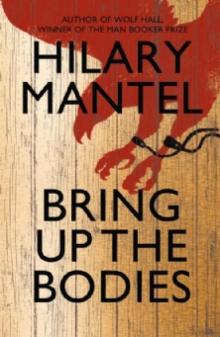 Wolf Hall: Bring Up the Bodies
Wolf Hall: Bring Up the Bodies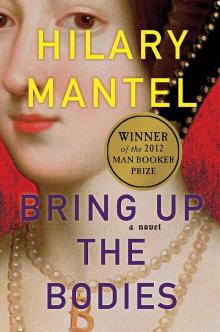 Bring Up the Bodies tct-2
Bring Up the Bodies tct-2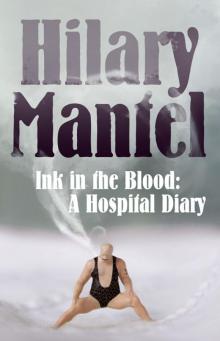 Ink in the Blood
Ink in the Blood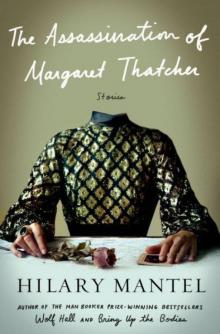 The Assassination of Margaret Thatcher
The Assassination of Margaret Thatcher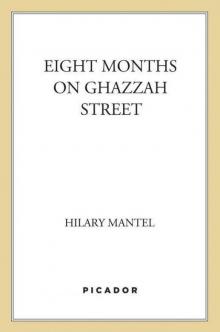 Eight Months on Ghazzah Street: A Novel
Eight Months on Ghazzah Street: A Novel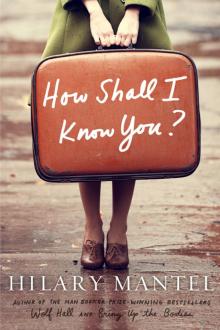 How Shall I Know You?
How Shall I Know You?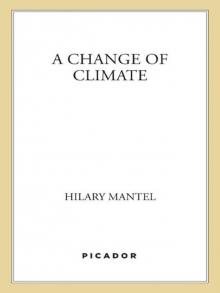 A Change of Climate: A Novel
A Change of Climate: A Novel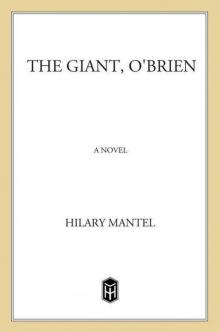 The Giant, O'Brien: A Novel
The Giant, O'Brien: A Novel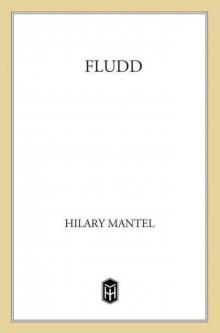 Fludd: A Novel
Fludd: A Novel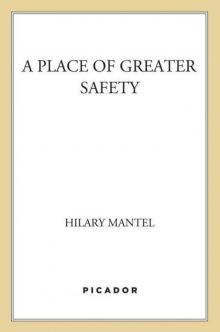 A Place of Greater Safety: A Novel
A Place of Greater Safety: A Novel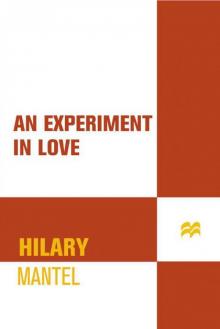 An Experiment in Love: A Novel
An Experiment in Love: A Novel